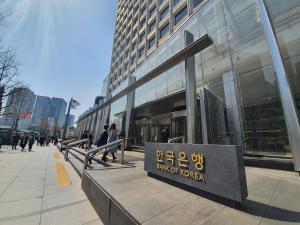Demand for housing sales and jeonse funds continues, increasing by 5 trillion won

With the recent demand for home sales and jeonse funds, the amount of money borrowed by households from banks increased by more than 7 trillion won last month.
According to the’Financial Market Trends in January 2021′ announced by the Bank of Korea on the 10th, the bank’s household loan balance as of the end of last month was 99.4 trillion won, an increase of 7.6 trillion won in one month. This is more than double the amount of increase in the same period of the previous year (3.7 trillion won), and is the largest increase since the breaking news in 2004 based on the increase in January.
Among household loans, the balance of mortgage loans reached 726.900 trillion won at the end of last year, an increase of 5 trillion won a month. It is also a record high based on the increase in January.
Yoon Ok-ja, deputy general manager of the Financial Markets Bureau of the Financial Markets Bureau, explained, “Since last year, the demand for housing sales and charter-related funds continued, and the size of mortgage loans continued to increase from the previous month.”
Other loans such as general credit loans and negative bankbook loans, excluding home mortgage loans, also increased by 2.6 trillion won to 268 trillion won. Based on the increase in January, it is a record high. The demand for funds related to housing transactions and stock investment continued to be affected.
At the end of last month, the bank’s corporate loan balance increased by 10 trillion won a month to 98.3 trillion won. The balance of loans to large corporations increased by 3.30 trillion won to 17.5 trillion won, and the balance of loans to SMEs increased by 6.6 trillion won to 811.2 trillion won. Among the loans to SMEs, the balance of loans to individual business owners increased by 2.5 trillion won to 3.88 trillion won.
“The increase in corporate loans last month was largely due to seasonal factors,” explained Yun. “Generally, companies repay loans to lower their debt ratio at the end of the year, and then re-treat temporary payments at the beginning of the year.” .
On the other hand, the bank’s deposit balance was 1925 trillion won, a decrease of 11.2 trillion won a month. Occasional deposits and deposits decreased by 1.48 trillion won due to the withdrawal of corporate funds related to the payment of VAT, and term deposits also decreased by 4.4 trillion won, mainly from household and local government funds.
The balance received by the asset management company was 726 trillion 100 billion won, an increase of 343 trillion won over the same period. Money Market Fund (MMF) increased by 27.8 trillion won due to the re-deposit of corporate funds that were withdrawn to secure funds at the end of the year, and bond-type funds and equity-type funds also increased by 4.4 trillion won and 1.7 trillion won.
Copyright © Shin-A Ilbo Unauthorized reproduction and redistribution prohibited
